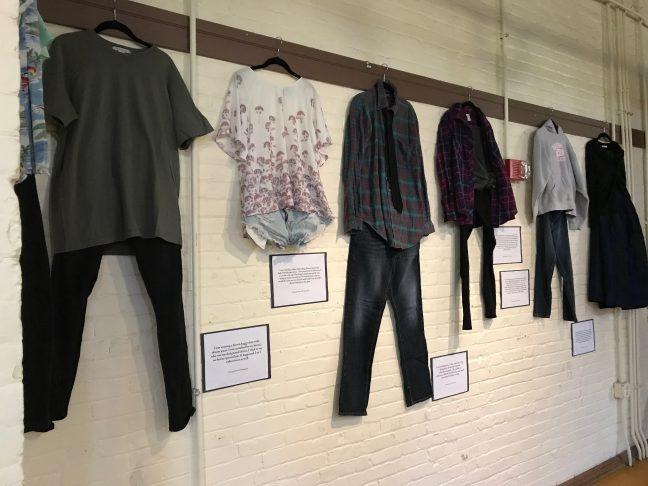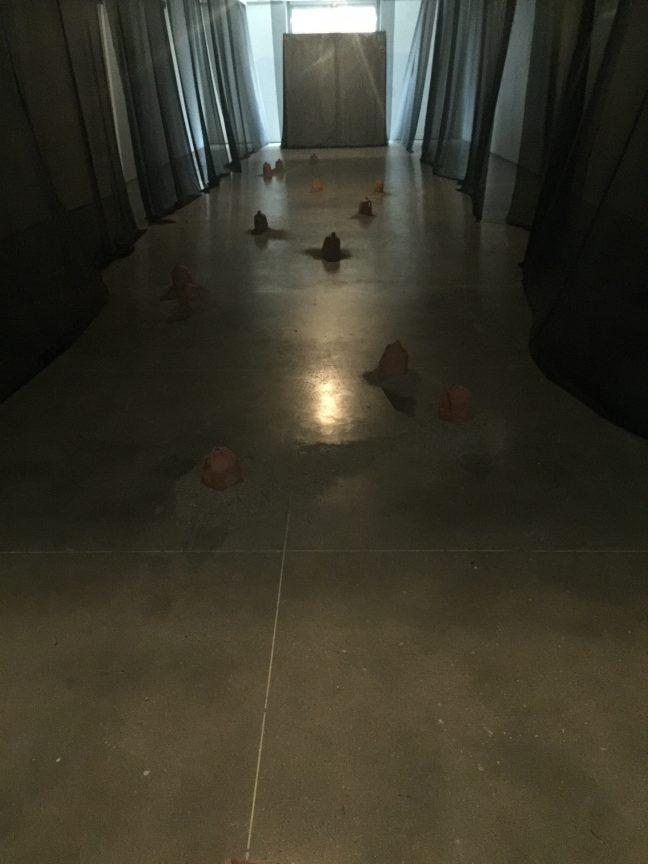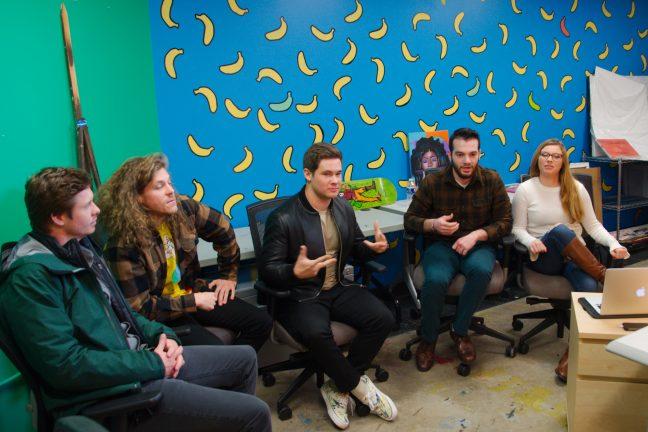
Gaping eyes, outstretched arms and bloodless skin all characterize the most popular image of the living dead. On the University of Wisconsin’s campus, though, all one needs is an orange bandana to hunger for the taste of human brains. Their paranoid victims – other bandana-clad students – are reduced to the basest of survival instincts when walking from class to class.
The UW-Madison Humans vs. Zombies chapter, or HvZ, has more than 1,300 student members on its Facebook group – an impressive feat, considering the Associated Students of Madison barely scrapes 500. About 200 members are signed up for the event starting next week, where humans will be found fleeing zombies all over campus.
The Madison chapter hosts one round of the battle per semester, which over the years has proved often enough for both zombies and surviving humans to get their fill of the game. The round lasts one week, and within that week the group’s mediators plan several missions that run parallel to an ongoing storyline about the undead. This semester, planned mini-games played on weekends will be a new addition to the usual structure.
“There’s an extreme satisfaction when you actually complete a mission,” Tom Zimonick, one of four student mediators this semester, said. “In a video game when you beat a game, it’s cool, but in HvZ it’s like I actually did something that’s going to impact me.”
Another mediator, Patryk Schmeling, similarly contrasts HvZ to non-physical games, saying, “The thrill of being a zombie and tagging someone is extremely rewarding, because it doesn’t happen that often. You actually went out and it was all on you, like everything that you have done is what you have made of it. Whereas a video game, yes it’s you, but it’s you just inputting on a controller.”
To say the least, having the opportunity to live out the hair-raising dynamic of films like “Night of the Living Dead” and “Zombieland” is an infectious concept. The game started on the East Coast in 2005, and spread virally by word of mouth and the internet – according to humansvszombies.org, today, more than 650 colleges have a version of the game. The Madison Chapter began three years ago. Senior Abby Schuh participated in the first-ever UW round, and has been a prominent figure in the game ever since.
“My good friends were the people who formed the game, so I was in the first round. I’m a really active person and it sounded like it would be a good time,” Schuh said.
Her freshman year, Abby tagged 16 people in one day: such a feat that the structure of the game needed to be reworked that semester. Since then, Abby has been hit by two cars, but sustained no lasting injuries. Although chasing players near traffic is highly discouraged in the rules of the game, she shares this information with a slight sense of pride.
“I have jumped out of trees onto people and hid in garbage cans to tag people,” she said. “I climb things and freak people out.”
She’s been dubbed many names, the most recent of which is Zombie Queen. She is always one of the few players who starts out as a zombie, not a human, and has been immortalized within the game’s storyline.
“It’s a cool way to get people out and running around,” she said, emphasizing the sometimes-overlooked fitness aspect to HvZ, “and it’s a great way to meet people. In the 900 people that have probably come through and played in the past three years, there hasn’t been a person that I’ve not liked. It’s a really fun group.”
Schuh says that while she is strapped for time, she makes time for HvZ mainly for the social and cardio aspects. “We encourage people to be active; we like to see people run,” confirmed mediator Nat Olson.
Plus, there’s nothing more exhilarating and heart-pumping than being scared out of your mind.
“It starts instilling, especially as humans, this paranoia where whenever you leave a building you are frightened of … running into a zombie,” mediator Patryk Schmeling described.
Mediator Alex Turek explained he thinks the activity is more of a way to relieve students’ stress than to cause it – and it hardly overtaxes their already-constrained time. Like the faux-Quidditch teams that sprung up on university campuses in the wake of the Harry Potter book and movie series, Humans vs. Zombies is a way to release anxieties of real life by living out a cult fantasy.
“Don’t get the idea it’s a stressful game,” Turek clarified. “These kids, for an entire semester, all they do is study and research and they are just stressed out. HvZ, I think, gets a common misconception: It’s not just kids playing games. It’s college kids who are just trying to get relief for one week from hard studying. And honestly it is the best relief; you get the chance to get out and be active, and be social. That’s the ultimate goal of our game.”
The first mission of this semester’s round begins Tuesday in the Humanities courtyard at 7 p.m. The courtyard is a safe zone until the mission begins, and zombies have been instructed to stay away. The “Humans Vs. Zombies (Madison Chapter)” Facebook group contains information for joining the infection, but first and foremost is their No. 1 Rule: Don’t be a douche bag. This involves things like stalking, not wearing the bandana at all times, interfering with non-players’ daily lives or painting a nerf gun to look more realistic. The police are filled in at the start of each round, and are okay with the game taking place, but would take action against a player bringing a real-looking gun into campus.
How to “stun” a zombie
- Pelting with nerf pellets or balled-up socks will stun a zombie until they can “re-spawn” at the next 15-minute interval (5:00, 11:15, 9:30, etc.). According to one of the four mediators this semester, Tom Zimonick, blow darts made by shooting a nerf pellet out of a piece of PVC pipe are “legal and actually very effective.” Try not to be the player who spends 50 dollars on a high-tech nerf gun then dies in the first round.
How to “eat” a human – or, rather, their brain
-
Tag a player with an orange bandana around their arm, not in a safe zone. Be sure to tag only permanent fixtures to the body, as backpacks and so on do not count.
-
Make sure the human shifts his or her bandana to the forehead, signifying the transformation to a zombie.
-
Take the human’s HvZ ID number, to report later on the Madison chapter’s website: www.hvzsource.com/wisc/
Safe Zones
-
Any academic building, residence hall, library or terrace
-
Private businesses
-
Busses, bikes and longboards













